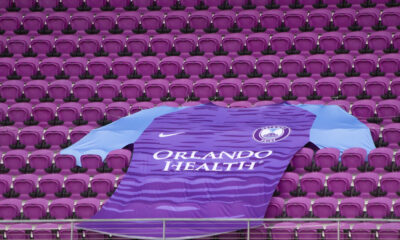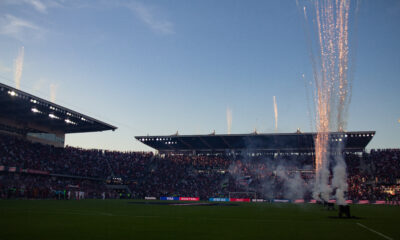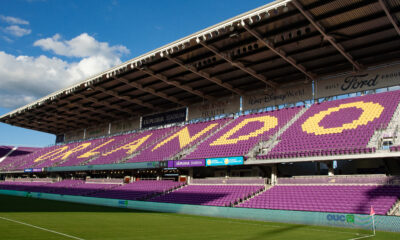Orlando City
2016 Orlando City Season in Review: Hadji Barry
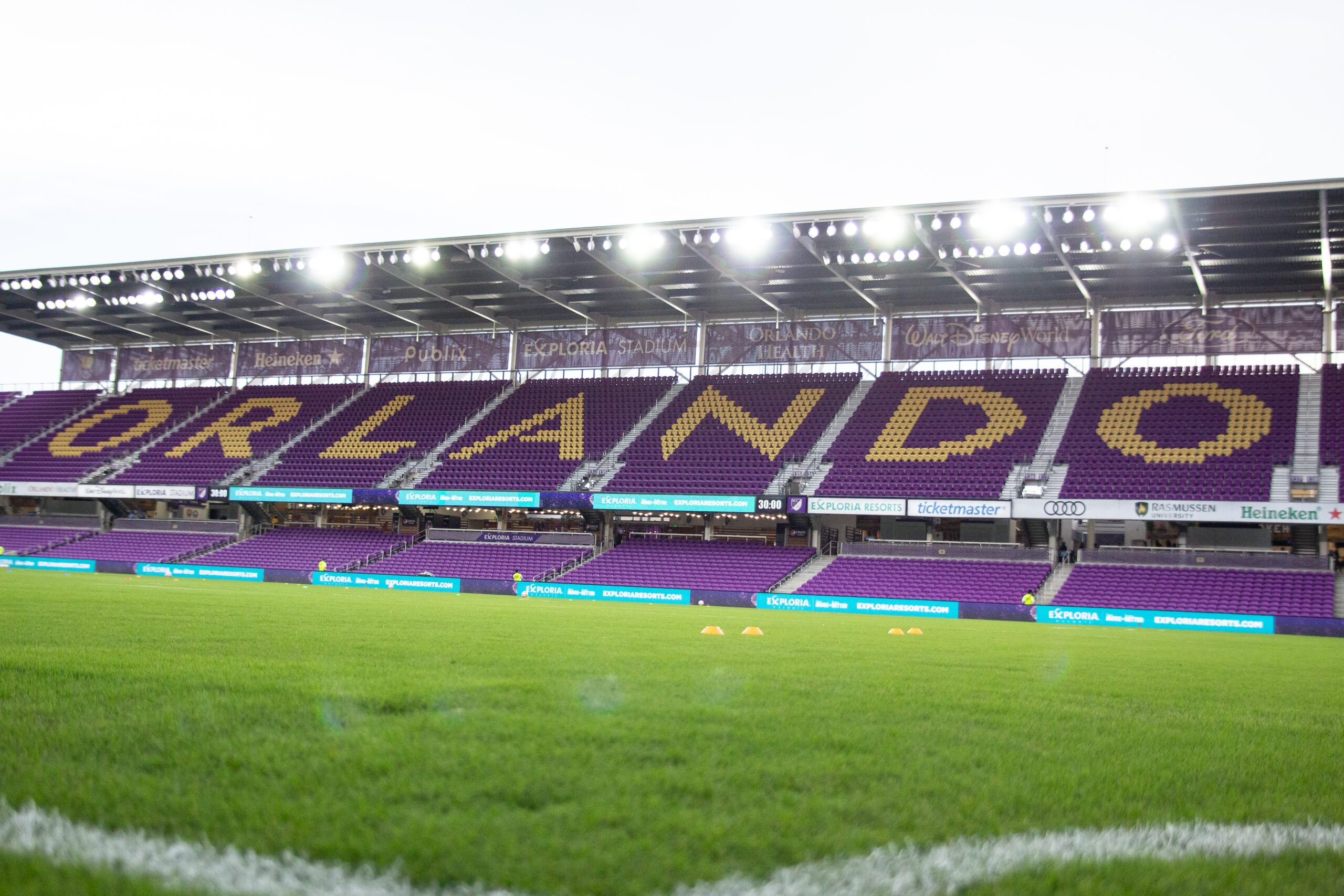
Orlando City acquired striker Hadji Barry in the 2016 MLS SuperDraft in a surprise trade with D.C. United back in January. By swapping some targeted allocation money and the club’s second-round pick (No. 32 overall), the Lions were able to move up and grab a second first-round selection (after the club nabbed midfielder Richie Laryea at No. 7 overall).
The former Orlando City U-23 player came out of the University of Central Florida right here in the City Beautiful after a solid senior season in which he potted 11 goals in 17 games. While Barry and Laryea were both expected to develop with USL side OCB, the UCF product impressed enough to get a few looks with the senior side in his first pro season, whereas the higher-picked Laryea languished with the reserve team all year.
Barry saw action in 10 USL matches as a rookie, but still tied for second on the team with four goals. He also added two assists in his productive 694 minutes in the USL, firing 16 shots (six on target) and committing only one foul. His enticing speed and finishing with OCB led to him getting a chance on the MLS stage. Let’s take a look at his 2016 MLS campaign.
Statistical Breakdown
The 23-year-old appeared in eight matches with Orlando City – nearly as many as he did with OCB – making four starts and playing 293 minutes. However, his play with the senior team ended after Aug. 14, after appearing in four consecutive matches. His four starts came in consecutive games from July 16 through Aug. 7.
Despite his history as a forward, Barry was primarily deployed as a right attacking midfielder, using his speed to get the ball up the flank. He did not score a goal and managed only one shot (off target) but did register an assist. That lone assist came in his MLS debut on opening day, in a 2-2 draw against Real Salt Lake on March 6 – a game in which he played just 13 minutes.
Barry finished with a passing accuracy of 77.2% according to Whoscored.com, which places him ahead of more seasoned forwards Cyle Larin (73.4%), Julio Baptista (77%), and Carlos Rivas (71.4%). However, his 0.1 key passes per game was far below his fellow strikers, which was exacerbated when he played in the attacking midfield. He also didn’t provide crosses from his wide position. Defensively, his 0.4 tackles per match did beat out Larin, Rivas, and Baptista.
Best Game
The rookie’s first MLS start was his most outstanding performance of 2016. On July 16 at Vancouver, Barry started at right attacking midfield, alongside Baptista and Kevin Molino, beneath Larin up top. Barry earned his highest rating in our player grades after that match against the Whitecaps.
As our Logan Oliver wrote after the match:
Hadji had a bright start to the match, testing the Whitecaps’ right flank and creating some dangerous chances. Whether he was splitting Vancouver defenders or rounding them with his pace, he caused a lot of problems in his first MLS start. If only he’d been able to keep it up during the second half, Orlando might have come away with more.
Indeed, the former UCF star did create all kinds of problems for the Vancouver defense throughout the first period before the hosts adjusted to account for his pace. One of the things Barry must learn to get consistent minutes in MLS is to add elements to his game that complement his speed.
2017 Final Rating
In Barry’s 10 matches, he never played a full 90 minutes, reaching a season-high 84 at Vancouver. In four of his games he played 17 minutes or less. As such, it would be unfair to give him a rating for 2016, so The Mane Land gives the young speedster an incomplete for his rookie campaign. There’s a wealth of potential within Barry but at this point it’s very raw and will require further development in order for the Conakry, Guinea native to start seeing more minutes with the senior team.
2017 Outlook
Had there not been a midseason coaching change, Barry’s outlook would be simple to state. He’d be developed further with OCB, while picking up the occasional game as needed (or earned) with the MLS side in 2017. But it’s difficult to tell precisely how Jason Kreis views Barry, particularly since the rookie did not see the field after Kreis’ second match with the club.
My gut tells me that Orlando City hangs onto Barry because of his tremendous potential, however, I also wouldn’t be surprised if the Lions dangled him in trade talks this off-season to gauge what they could get in return. Most likely he’ll be back in purple in 2017 and continuing to develop his game.
Lion Links
Lion Links: 6/9/25
Lions on international duty, Duncan McGuire undergoes shoulder surgery, Pride and OCB win, and more.
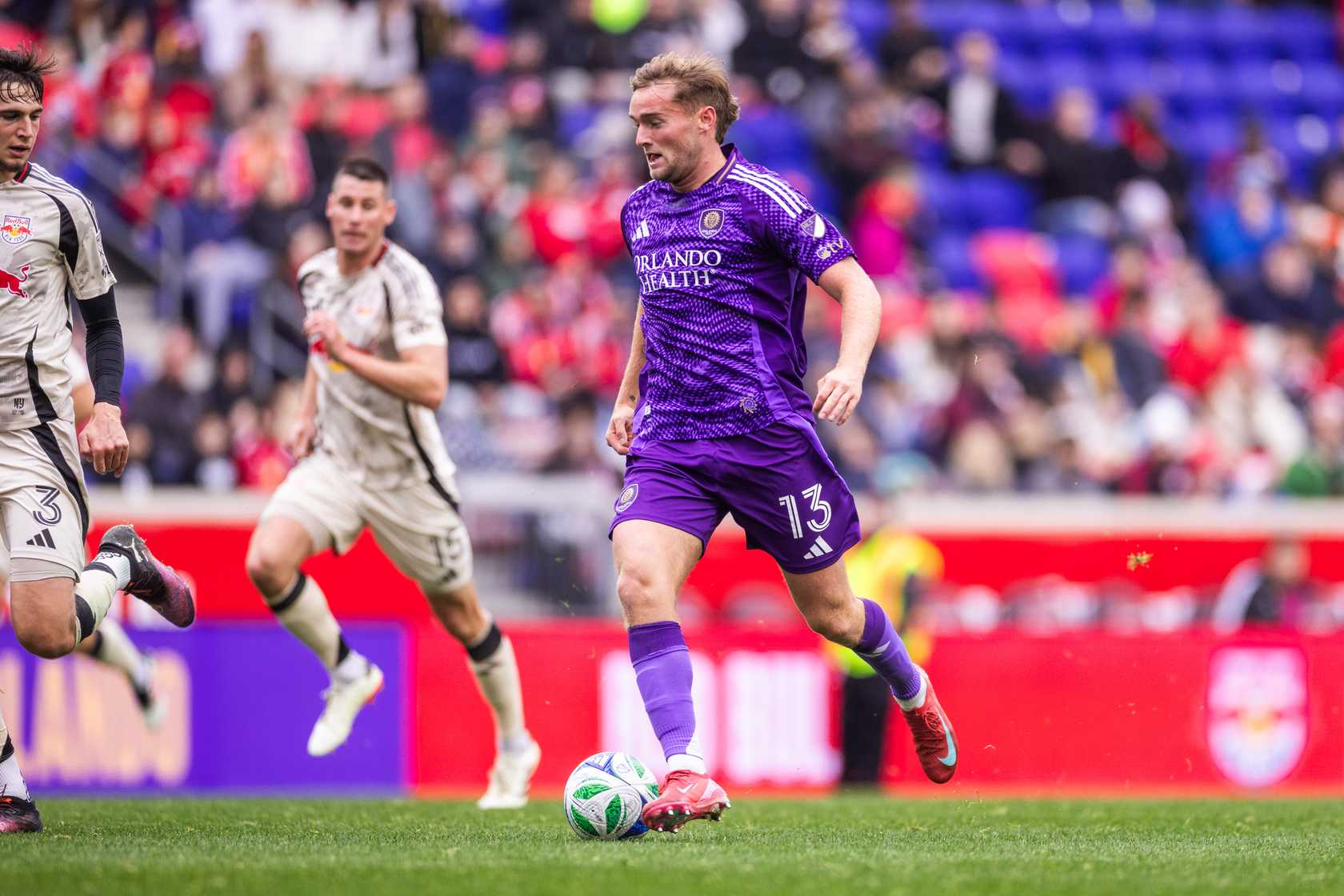
Hello, Mane Landers! I hope all is well with you down in Florida. I’ve had a busy week covering sports around the Chicago area. Before we get started, let’s wish a happy belated birthday to Orlando Pride midfielder Prisca Chilufya, who turned 26 on Sunday. Our Lions were off this weekend, but the Pride and OCB picked up wins. We’ve got plenty to cover today, so let’s get to the links.
Lions on International Duty
Several Lions were in action over the weekend on international duty. Orlando City goalkeeper Pedro Gallese earned a clean sheet for Peru in a scoreless draw against Colombia Friday in a Conmebol World Cup qualifying match. Peru will face Ecuador on Tuesday.
Orlando City forward Marco Pasalic delivered a nice assist to set up Ivan Perisic’s goal in his country’s 7-0 win over Gibraltar in UEFA World Cup qualifying Friday. Croatia will face the Czech Republic later today.
Orlando City B forward Justin Ellis scored the game-winning goal in stoppage time for the U-18 U.S. Men’s National Team to beat Australia 3-2 in the UEFA Friendship Cup and remain undefeated in the group stage.
Duncan McGuire Undergoes Shoulder Surgery
Orlando City announced Friday that striker Duncan McGuire had undergone arthroscopic surgery to repair the labrum in his left shoulder. McGuire will be out for a considerable amount of time, and the club has not provided a timeline for the striker’s recovery. He had played in 12 matches, started three, and scored one goal in the regular season, adding an assist. The striker position was already thin for Orlando, and with McGuire sidelined, Oscar Pareja will have to make adjustments. We’ll have to wait and see if Orlando City decides to add another striker when the MLS Secondary Transfer Window rolls around on July 24. We at The Mane Land wish McGuire a speedy recovery and hope to see him back on the pitch soon.
Pride Blank Houston Dash at Home on Late Goal
The Orlando Pride defeated the Houston Dash 1-0 Saturday at Inter&Co Stadium. The match went down to the last second as Cori Dyke scored her first professional goal for the Pride at the death to seal the win. Orlando has won back-to-back matches and is second in the NWSL table with 22 points. The Pride will begin a two-match road trip starting Friday, taking on Bay FC.
OCB Stuns Huntsville City FC on the Road
Orlando City B defeated Huntsville City FC 3-2 Friday at Wicks Family Field at Joe Davis Stadium. After a scoreless first half, the Young Lions struck first as Hayden Sargis scored the opener. Huntsville City FC answered with two goals to take a 2-1 lead. OCB overcame a 2-1 deficit and scored two late goals from Jhon Solis and Dyson Clapier to take home the three points. The win lifted the Young Lions to third in the MLS NEXT Pro Eastern Conference standings with 20 points. OCB has won two straight and will be back on the road Wednesday to take on Carolina Core FC.
Despite Early Goal, USMNT Falls to Turkey in Friendly
The U.S. Men’s National Team fell 2-1 to Turkey Saturday at Rentschler Field in East Hartford, CT in a friendly. Orlando City defender Alex Freeman made his debut for the USMNT, starting the match and playing 90 minutes. Jack McGlynn scored the opening goal in 59 seconds to give the USMNT the early lead. However, Turkey scored back-to-back goals later in the first half to take a 2-1 lead — the first on a howler of a mistake by Johnny Cardoso — and held on for the win. It’s the third straight defeat for Mauricio Pochettino’s squad as we’re nearly a year away from kickoff of the 2026 FIFA World Cup. The USMNT will look to bounce back with another friendly Tuesday against Switzerland in Nashville. The USMNT’s first match in the Concacaf Gold Cup is June 15 against Trinidad & Tobago.
Portugal Wins Second UEFA Nations League Title
Portugal beat Spain 5-3 on penalties after a thrilling 2-2 draw to win a second UEFA Nations League title. Portugal was down 2-1 in the second half before Cristiano Ronaldo scored the equalizer. It was Ronaldo’s 138th career international goal. After no goals in extra time, the match went to penalties. Tied 3-3 after three rounds, Nuno Mendes converted from the spot for Portugal, while Alvaro Morata of Spain saw his shot saved in the fourth round. Ruben Neves put it away in the final round of penalties to claim the UEFA Nations League trophy.
Free Kicks
- Former Lion Nani and his Nani FC side fell 2-1 to Concafa SC in the quarterfinals of The Soccer Tournament Saturday. Another former Lion, Brek Shea, scored the winning goal for Concafa SC to book a spot in the semifinals.
- The National Women’s Soccer League announced its Best XI for May and Orlando Pride forward Barbra Banda was honored on the squad after scoring the Pride’s first-ever hat trick against the Utah Royals on May 23.
- Chelsea forward Mia Fishel is reportedly in discussions with multiple NWSL clubs as she seeks a summer transfer move. Fishel was drafted by the Orlando Pride in 2022 but didn’t sign with the club at the time, instead signing with Tigres in Mexico.
- Luciano Spalletti announced during a press conference Sunday that he has been fired as manager of the Italian National Team. Italy began its 2026 World Cup qualifying campaign with a 3-0 loss to Norway over the weekend.
- France defeated Germany 2-0 to win the third-place match in the UEFA Nations League.
- Major League Soccer and its players union have been unable to come to an agreement as talks continue over the Club World Cup prize money and player compensation.
That will do it for me today, Mane Landers. Enjoy your Monday and I’ll see you next time.
Orlando City
Orlando City Striker Duncan McGuire Undergoes Shoulder Surgery
It’s the other shoulder this time, but Big Dunc is on the shelf for awhile again after undergoing surgery.
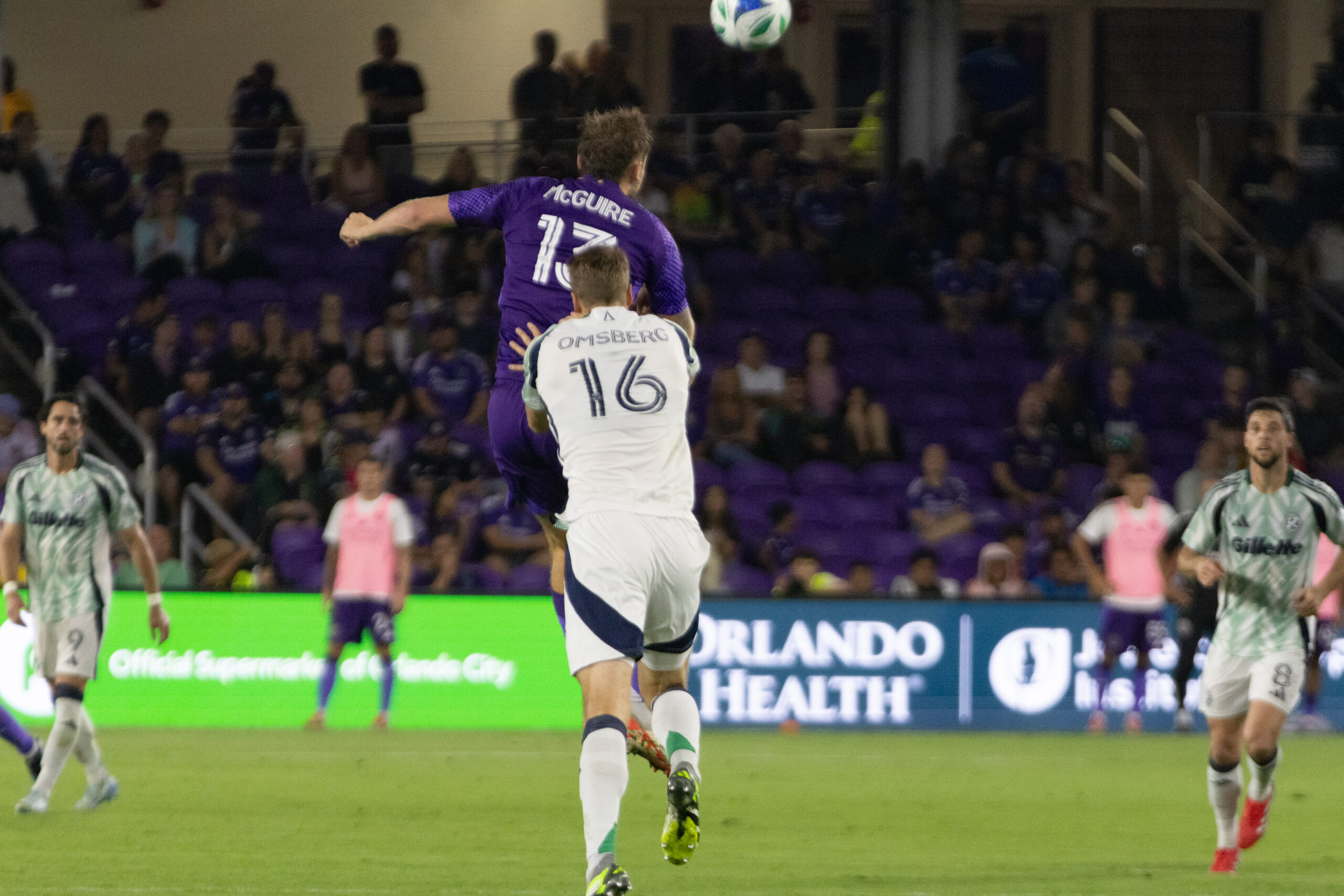
Orlando City announced today that Duncan McGuire has undergone arthroscopic surgery to repair the labrum in his left shoulder. The surgery was performed by Orlando City Chief Medical Officer Dr. Craig Mintzer of the Orlando Health Jewett Orthopedic Institute performed the surgery. Mintzer previously repaired the labrum and rotator cuff in McGuire’s right shoulder back in December for an injury he sustained in Orlando City’s playoff match against Charlotte FC Nov. 9 when he was pulled down by Djibril Diani.
The club’s press release said the 24-year-old striker’s return to play is expected “later this year.” The recovery given for his right shoulder surgery in late 2024 was listed as four to five months, but McGuire was able to come back and play much earlier than expected, appearing for the first time in 2025 in Orlando’s March 15 against the New York Red Bulls — at least a month before the earliest initial projection — however, this time there was no mention of damage to the rotator cuff.
Regardless, the Lions will be without the big target striker for a considerable amount of time.
McGuire had appeared in 12 matches during the regular season in 2025, starting three and scoring one goal and adding an assist. His goal came recently, serving as the game winner in Orlando’s 1-0 home victory over the Portland Timbers on May 24. He was recently listed as questionable on the club’s availability report ahead of the team’s most recent match against the Chicago Fire.
Orlando City drafted McGuire in the first round (No. 6 overall) in the 2023 MLS SuperDraft. After a breakout rookie campaign, in which the Omaha, NE native scored 14 goals, he was courted by several teams in Europe, signing with Blackburn Rovers, only to see the transfer rejected by the English Football League due to an administrative error by the EFL Championship club. After returning to Orlando, McGuire signed a new deal on Aug. 22 to remain a Lion. The new contract runs through 2027 with a club option for 2028. McGuire scored 10 goals and added three assists in 2024. For his Orlando City career, McGuire has appeared in 88 games (46 starts) across all competitions, scoring a total of 28 goals to go along with seven assists.
What It Means for Orlando City
McGuire appeared to be just finding his form, so this injury is unfortunate. The club didn’t put a timeline on McGuire’s recovery this time, but shaving a little off his 2024 recovery estimate, it’s likely that he’ll be out until at least some time in September.
Oscar Pareja has been favoring a 4-4-2 with Luis Muriel and Martin Ojeda up top in recent weeks, with Ramiro Enrique — who is also finding his form — typically spelling one of them when needed. Not having McGuire will affect Pareja’s late-game substitution pattern when Orlando is trailing, as he likes to put Enrique and McGuire both on the field when chasing the game. It also takes the team’s best target striker option out of the lineup when dealing with back lines with lots of height.
McGuire brings size and strength and an ability to occupy center backs that others on the roster can’t replicate. There are times when Enrique’s game is better suited to the opponent, but without McGuire there will be no ability to pivot. With Jack Lynn’s off-season retirement, that leaves the striker pickings mighty slim on the Orlando City bench. That might change Ricardo Moreira’s approach to the MLS Secondary Transfer Window.
Losing a scorer of McGuire’s caliber is always difficult, but this season it could be the difference between finishing high in the table and simply getting into the postseason in a strong Eastern Conference field.
Opinion
Orlando City Must Learn from May’s Mistakes
The Lions can learn some valuable lessons from the three losses they suffered in May.
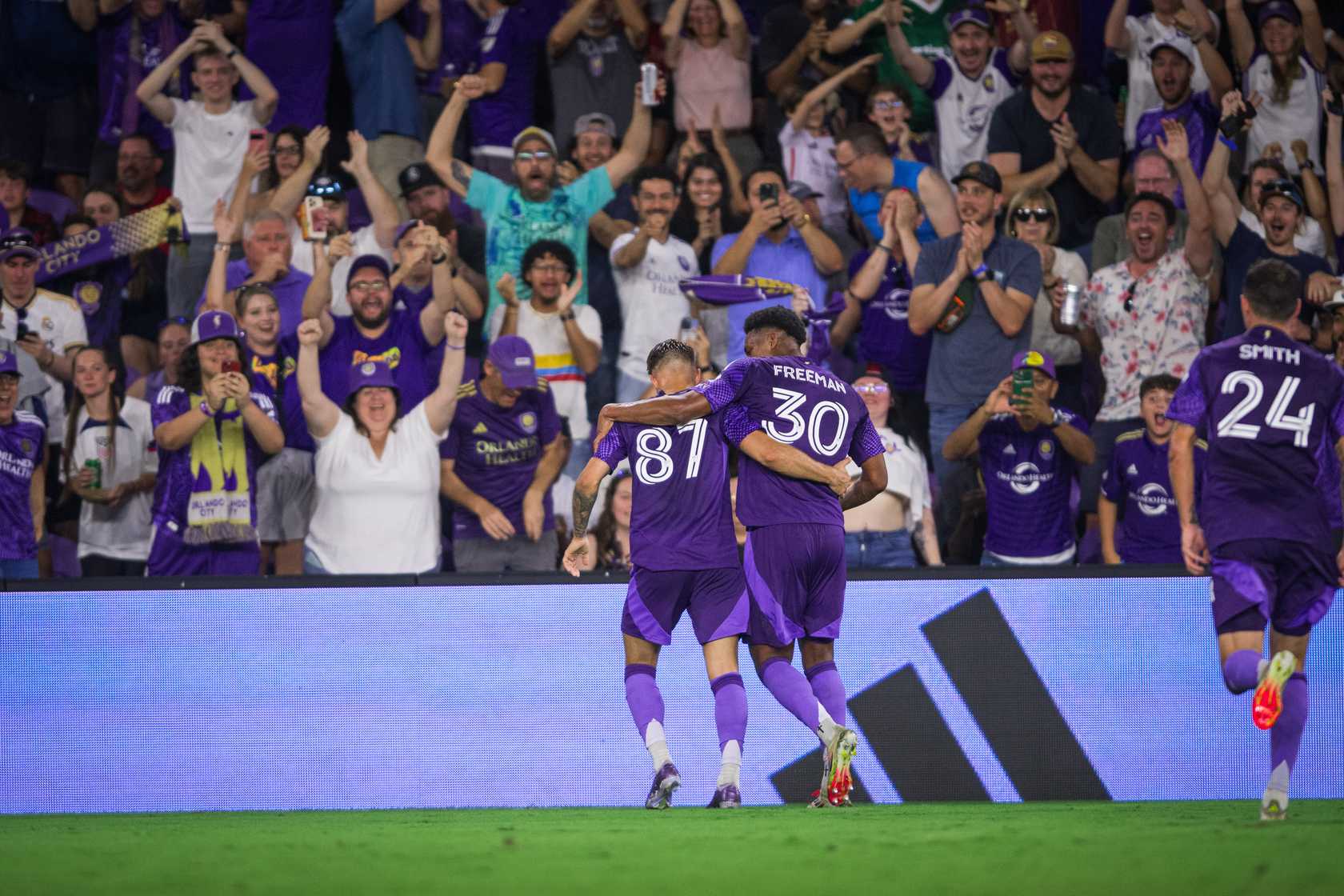
Orlando City hadn’t quite achieved juggernaut status as the Major League Soccer season turned from April to May, but a 12-match unbeaten run in the league is nothing to sniff at, despite there being a healthy number of draws interspersed with the victories. Things turned sour as May drew to a close though, as the Lions lost three of their final four matches of the month and entered a two-week break with a whimper rather than a roar.
Losing is never fun, but in this case those three defeats don’t need to be entirely negative experiences, and there are plenty of lessons to be learned from those three bitter losses that will hold Orlando in good stead if it can implement the proper solutions.
More Squad Rotation
One of the biggest factors in Orlando’s rough finish to May was a lack of squad rotation. Oscar Pareja has always been a coach that likes to find his first-choice XI and stick to it almost religiously. He doesn’t normally tweak his lineups or tactics according to whatever opponent is on the slate, and very much values consistency. In periods of fixture congestion, that tendency can be to Orlando’s detriment, and that was very much the case against both Nashville SC and the Chicago Fire.
After beating Inter Miami 3-0 in an emotional rivalry match on May 18, Pareja made just one change for a U.S. Open Cup match against Nashville SC three days later. Ramiro Enrique slotted in for Luis Muriel up top, but every single other starter from the Miami game also got the nod midweek. With Nashville deploying a heavily rotated lineup mostly filled with backups, the gamble was a simple one: hope that OCSC’s A-team can open up a big first-half lead against Nashville’s B-squad before bringing mass changes in the second half to get guys some rest. Hindsight is, of course, 20/20, but the strategy backfired badly as the Lions lost 3-2. Orlando started well with Marco Pasalic’s 17th-minute strike, but the team faded badly afterwards and gave up a couple of very uncharacteristic goals to lose the game. Lapses in concentration and tired defending cost OCSC the game, and that isn’t something we can normally say about this team.
Then, after losing to Atlanta United 3-2 on May 28 due in no small part to Cesar Araujo’s red card, Pareja made two changes for a match against the Chicago Fire on May 31, with Muriel coming in for Enrique, and the other change being a forced one, as Eduard Atuesta replaced the suspended Araujo. Those starters looked noticeably gassed during the resulting 3-1 loss, and the fatigue manifested itself by players missing chances that would normally be converted or in sloppy, mistake-ridden defending.
May was a packed month with a whopping nine matches in 31 days, and most months won’t be that busy. August is set to be the busiest remaining period of the year with six games in 31 days, although that number could rise higher if the Lions make a run in Leagues Cup. The bottom line is that guys are going to need more rest as the season goes on. If the coaching staff doesn’t trust some of the guys currently available as backups, then they need to dip into the transfer market in one way or another and get some players that they do trust, because if the starting XI gets run ragged during busy periods it’s going to cost Orlando, plain and simple.
Cool Heads Usually Prevail
Orlando City has received three red cards on the season, which is tied for the second-most in the league. Unsurprisingly, the Lions are winless in games in which they’ve had a man sent off, with draws against the New York Red Bulls and CF Montreal and a loss to Atlanta United. The results against the Red Bulls and Atlanta were particularly difficult to swallow, as before going down to 10 men, Orlando had looked on track to get three points in each game.
Araujo’s red card against Atlanta was especially frustrating, as he allowed Mateusz Klich to get under his skin, grabbed him by the throat, and reduced his team to 10 men when OCSC was nursing a 2-1 lead on the road. It was completely unnecessary and was also the sort of thing that Orlando had looked to put in the rearview mirror after keeping its collective composure and not picking up any bookings in the 3-0 road win against Miami, while the Herons picked up four and looked noticeably rattled in the process.
It should go without saying, but the Lions can’t afford to get key players sent off. Six extra points could make a big difference in the standings at the end of the year, and that number could rise even higher if OCSC can’t put its disciplinary issues to rest once and for all.
Focus for the Full 90
There were moments in each of Orlando’s three May losses that the team committed bad defensive lapses or mistakes. Whether it was not playing to the whistle on Nashville’s third goal, Atuesta’s bad turnover against Atlanta, or the Lions collectively allowing Chicago to stroll through midfield to score a third goal, there were plenty of examples of bad breakdowns that were largely absent during the team’s unbeaten run. Can some of that be attributed to tired minds and tired legs? Maybe so — it’s a lot harder to play crisp and focused when the minutes have piled up. Regardless, its something that can’t continue to happen going forward. It’s possible that having more rotation in the squad will help that a lot, but it’s also on the players on the field to stay as mentally sharp as they can when they’re out on the pitch.
Clearly, a recurring theme here is that fresh legs and balanced squad rotation are top of my list of things I want to see change. I’m all for riding the hot hands, but tired legs make for tired minds, and tired minds make mistakes and are easier to rile up. Whether reinforcements come from the bench or an outside source, using more bodies will go a long way towards solving some of the issues that we saw in May’s three losses. All we can do now is wait and see what happens once the team returns from its break. Vamos Orlando!
-
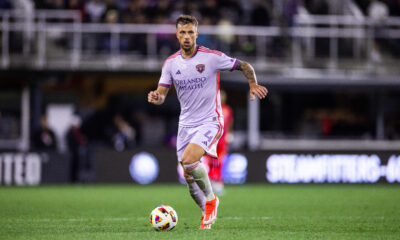
 Lion Links1 week ago
Lion Links1 week agoLion Links: 5/30/25
-
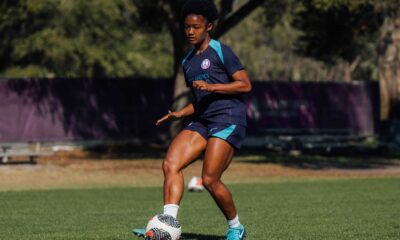
 Orlando Pride2 weeks ago
Orlando Pride2 weeks agoOrlando Pride Sign Forward Simone Jackson Through 2028
-
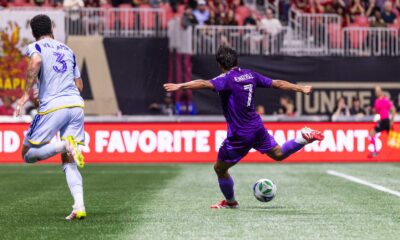
 Orlando City2 weeks ago
Orlando City2 weeks agoOrlando City vs. Atlanta United: Final Score 3-2 as Late Araujo Red Card Turns Orlando Lead into a Loss
-
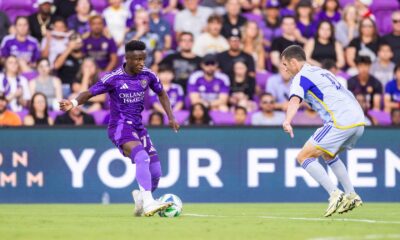
 Orlando City2 weeks ago
Orlando City2 weeks agoOrlando City vs. Atlanta United: Preview, How to Watch, TV Info, Live Stream, Lineups, Match Thread, and More
-
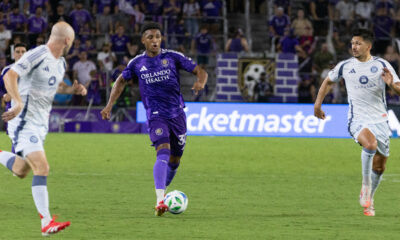
 Orlando City1 week ago
Orlando City1 week agoOrlando City vs. Chicago Fire: Final Score 3-1 as Dreadful Defending Dooms Lions
-
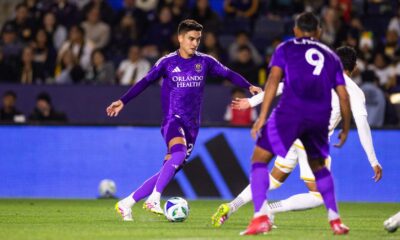
 Lion Links2 weeks ago
Lion Links2 weeks agoLion Links: 5/27/25
-
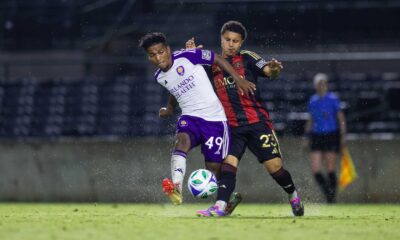
 Orlando City B2 weeks ago
Orlando City B2 weeks agoOrlando City B vs. Atlanta United 2: Final Score 3-0 as Young Lions Humbled by Atlanta, Selves
-
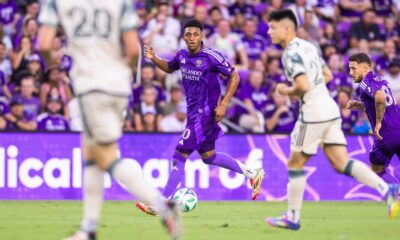
 Podcasts2 weeks ago
Podcasts2 weeks agoPawedCast Episode 482: Portland Rewind, Atlanta and Chicago Previews, OCB Struggles, and More


